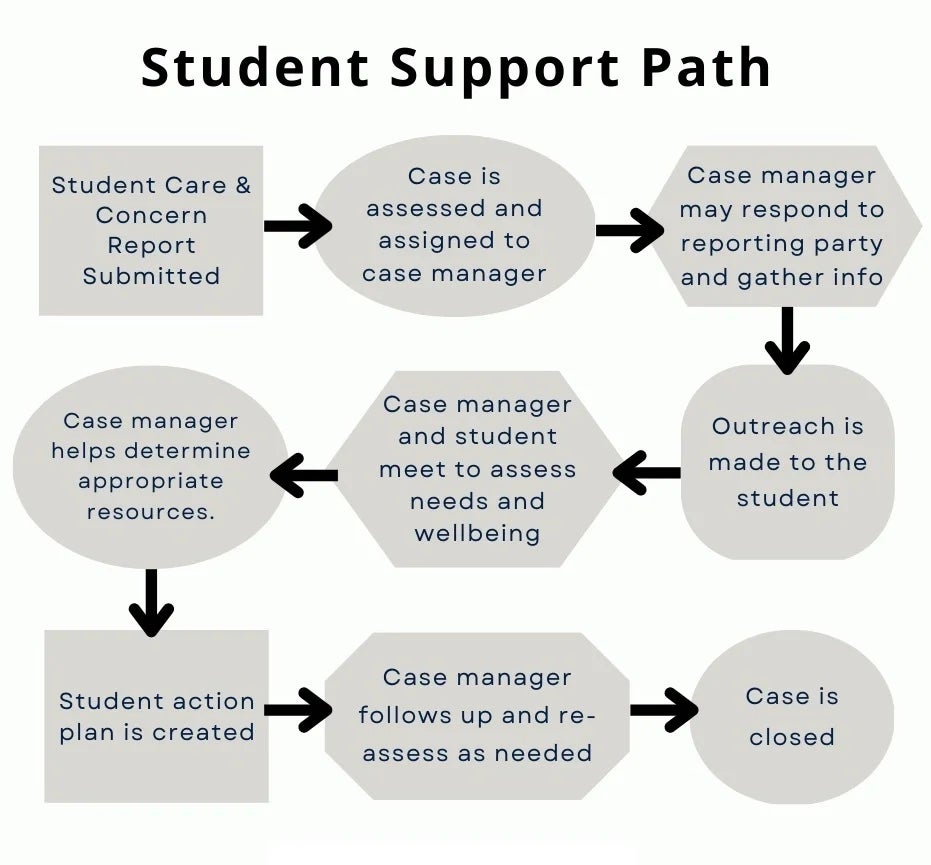Motion: On
Motion: Off
Contrast: Standard
Contrast: High
Apply site-wide
Why Make a Referral
- Early intervention means rapid solutions: Often, a quick response to provide a distressed student with timely resources will ensure that the student remains successful academically. Late intervention often involves missed classes, isolation from friends and family, possible withdrawals or late drops and an overall interruption in the student’s experience.
- Connecting the Dots: Our office receives reports from all over campus. Our ability to connect your concerns with the concerns of others means we are able to provide a greater level of support for each student involved.
When to Make a Referral
Although the terms “concerning” and “worrisome” are subjective, the following list of indicators provides some context when assessing whether a student may need additional support:

Academic Indicators
- Persistent unexplained absences
- Deterioration in quality/quantity of work
- Extreme disorganization or erratic performance
- Written or artistic expressions of unusual violence, morbidity, social isolation, despair, or confusion
- Continual seeking of special permission (extensions, make-up work)
- Patterns of perfectionism
- Disproportionate response to grades or other evaluations

Emotional Indicators
- Direct statements indicating distress
- Significant change in mood
- Angry or hostile outbursts, yelling, or aggressive comments
- More withdrawn or more animated than usual
- Appears over-anxious
- Excessively demanding or dependent behavior
- Fails to respond to outreach from staff/faculty

Physical Indicators
- Deterioration in physical appearance or personal hygiene
- Excessive fatigue, exhaustion, falling asleep in class repeatedly
- Visible changes in weight, statements about change in appetite or sleep
- Noticeable cuts, bruises or burns
- Frequent or chronic illness
- Disorganized speech, rapid or slurred speech, confusion
- Unusual inability to make eye contact
- Coming to class bleary-eyed or appearing under the influence of banned substances (e.g. narcotics, alcohol, other legally controlled substances)
Other Factors to Consider
- A concern expressed by another student or teaching assistant
- A student is experiencing substantial and prolonged financial or legal problems
- A sixth sense or hunch that something is wrong
What Happens Next
Most of our work is done privately in one-to-one meetings. It is a first step to identifying and addressing what students are experiencing so that we can minimize roadblocks to their personal success. Here’s the path of support provided by SSAS staff:

Referrals
If you need assistance and/or are concerned about a student’s behavior or well-being, please utilize the URI Report It page.

